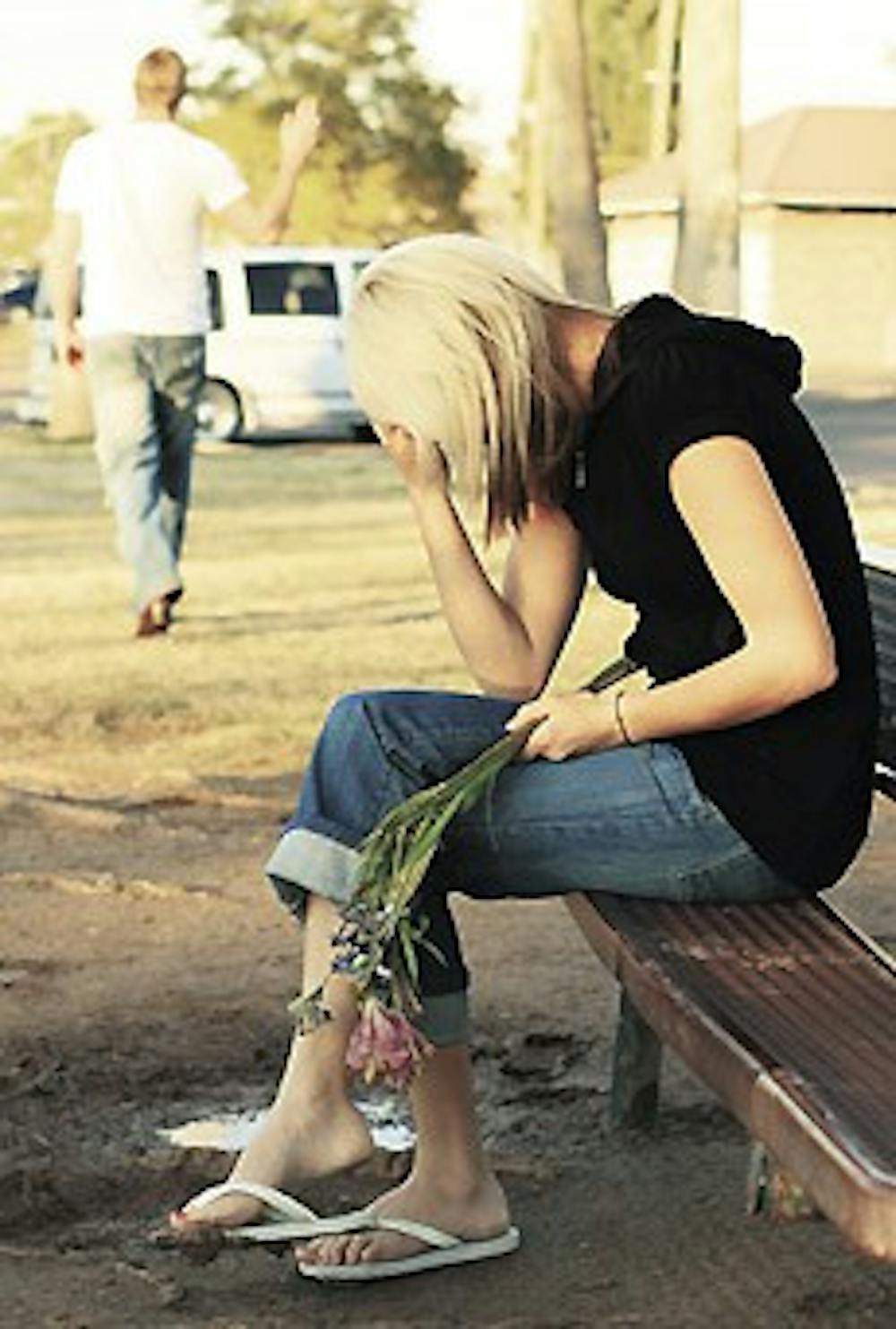Roses are red, violets are blue, it's a day before Valentine's Day and that boyfriend or girlfriend of yours just might break up with you.
Before dropping a month's rent on an iPod Touch for a significant other, it's time to re-evaluate and ask, "Is this relationship working?"
Most holidays bring about stress, and Valentine's Day is no exception. There are dinner plans, gift exchanges, wardrobe choices and wondering whether or not to send the traditional dozen red roses.
High expectations are set and pressure accumulates, which can force many couples to rethink the situation — and many realize it just isn't working anymore.
Inspiration for the study came about when ASU psychology professor Dr. Steven Neuberg asked his honors student Katherine Morse how she was doing one day. Her reply was her boyfriend had just broken up with her the night before, ironically on Valentine's Day. Two Valentine's break-ups for Morse resulted in a discovery of a potential honors thesis project.
The article entitled "How do holidays influence relationship processes and outcomes? Examining the instigating and catalytic effects of Valentine's Day" published in 2004, explored the potential influences of persistent, culture-wide events on relationships.
Neuberg and Morse surveyed college students in defined romantic relationships one week prior to Valentine's Day and one week after. They were surveyed on topics such as relationship stability, beliefs, and quality. Predictably, those participating in the study in low-quality relationships during the period surrounding Valentine's Day were more prone to breaking up, Neuberg says.
Valentine's Day is not always a red-flag for impending heartbreak. Their findings show people who are in poor or moderately good relationships are around five times more likely to break up in the two weeks around Valentine's Day — when displaying decreasing satisfaction.
The people whose relationships are in the same state during other times of the year are less likely to break up during that period.
Neuberg says the cultural assumption is that Valentine's Day is good for romantic relationships. "After all, it should remind lovers not to take each other for granted, lead them to really pay attention to each other, say and do nice things," he says. "And all these things are good for relationships."
On the other hand, Neuberg says there are also risk factors when it comes to displays of affection on Valentine's Day. "Ironically, it may be the great investment required to 'do Valentine's Day right' that makes it so dangerous to relationships," he says.
Holidays like Thanksgiving and Christmas tend to add stress to individuals' lives and highlight the dynamics of a relationship. But, Valentine's Day is more of a cause of anxiety and a catalyst to break up due to the stronger romantic context.
Sometimes all the planning, stress and high expectations associated with Valentine's Day outweigh the benefits.
Neuberg says the difficulties related to the romantic holiday are especially hazardous to the relationship. "It's almost as if the costs and efforts of pulling together a Valentine's Day celebration while knowing that one's faking one's affection are too much to bear," he says. "During another time of the year, the same difficulties may be manageable; around Valentine's Day, though, it just may be too tough."
There can be many reasons why men and women break up with each other on Valentine's Day, especially while in college.
Psychology junior Laura Milliken has been in a relationship with her boyfriend for two years and says she thinks the college lifestyle has an impact on the longevity of relationships.
"I think couples break up because of commitment issues," she says. "They stress out about what will come after college or they may have too much going on already as it is, and a serious relationship may be too much to handle."
Milliken has many single friends and thinks they just might prefer it that way. "A lot of people I know just want to be single," she says. "They just want to live 'the college life."
Some feel like breaking up on Feb. 14 is excessively cruel and ironic. But according to this study, it is a common occurrence.
On Feb. 15, the Facebook news feed just might have more red broken hearts than usual.




